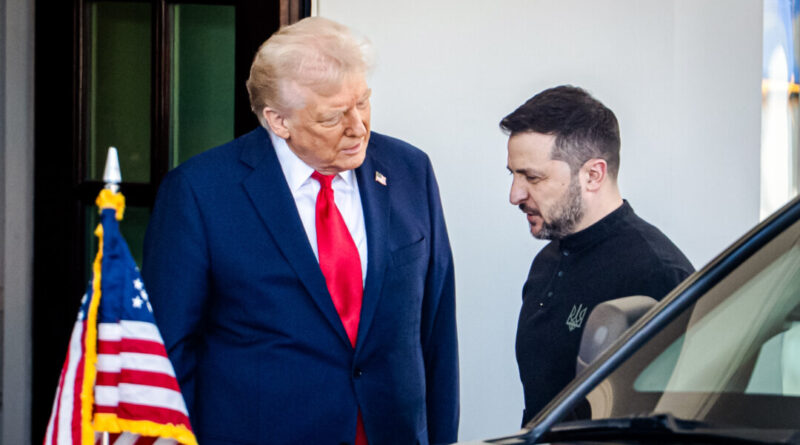Trump Says He Hopes Ukraine Would Immediately Sign Minerals Deal
Zelenskyy had resisted earlier versions of the minerals deal, citing the absence of firm security guarantees for Ukraine.
U.S. President Donald Trump said on Friday that Ukraine hasn’t signed a long-delayed rare earths agreement that the Trump administration has said is critical to cementing economic ties between Washington and Kyiv and supporting Ukraine’s post-war reconstruction.
Trump also expressed optimism that a broader peace deal between Ukraine and Russia was within reach.
“Work on the overall Peace Deal between Russia and Ukraine is going smoothly. SUCCESS seems to be in the future!” he said.
“We will seek to reach a corresponding agreement with the United States—an agreement on Patriots for Ukraine,“ Zelenskyy said. ”We are ready to purchase the necessary number of Patriot systems for our country. This is not about charity. We have proposed concrete deal options to protect our people.”
On the broader question of peace efforts, Zelenskyy emphasized the need for an immediate halt to hostilities.
“An unconditional cease-fire is needed,” he said. “Real pressure on Russia is needed so that they accept either the American proposal to cease fire and move towards peace, or our proposal—whichever one can truly work and ensure a reliable, immediate, and unconditional cease-fire, and then—a dignified peace and security guarantees.”
The United States has not formally released details of its Russia-Ukraine peace proposal.
The Trump administration has warned that if neither side accepts a peace deal soon, the United States may withdraw from its role as mediator.
Besides making the minerals agreement, which has yet to materialize, part of their efforts to facilitate an end to the Ukraine war, Trump and his administration view securing a reliable alternative to Chinese-controlled rare earths as a national security priority. Ukraine holds some of Europe’s largest untapped reserves of critical minerals—including titanium, uranium, lithium, and graphite—that could help the United States diversify supply chains still heavily dependent on China, which dominates global mining and refining operations.
Earlier drafts of the deal envisioned Ukraine ceding up to $500 billion worth of mineral assets to the United States to compensate for past and ongoing U.S. aid. However, the current version focuses on profit-sharing without retroactively billing Ukraine for previous aid.
As the minerals talks drag on, Trump’s efforts to broker a broader cease-fire between Ukraine and Russia have made limited progress.
Ukraine has accepted an unconditional cease-fire proposal from Washington, but Russia has yet to agree, continuing to demand that Ukraine cede four eastern provinces, abandon its NATO aspirations, and prohibit the stationing of foreign troops on its territory.
A partial cease-fire brokered last month collapsed almost immediately, with both sides accusing each other of violations.





